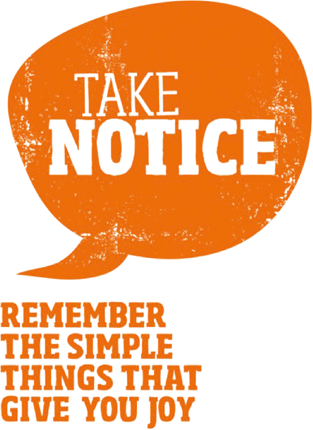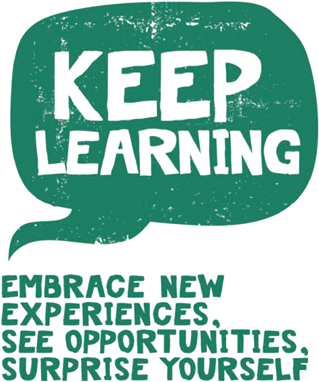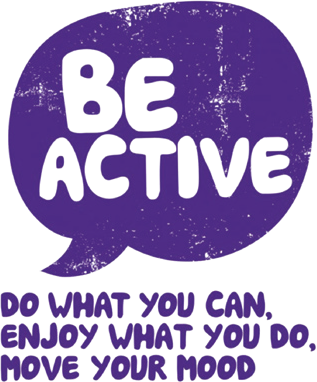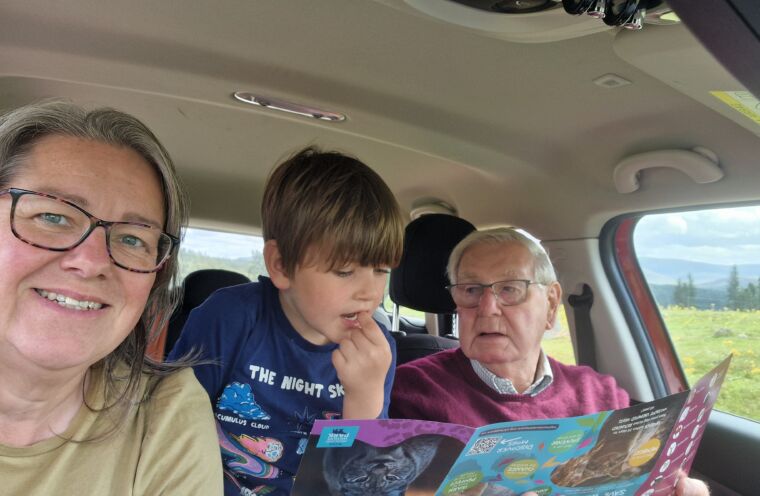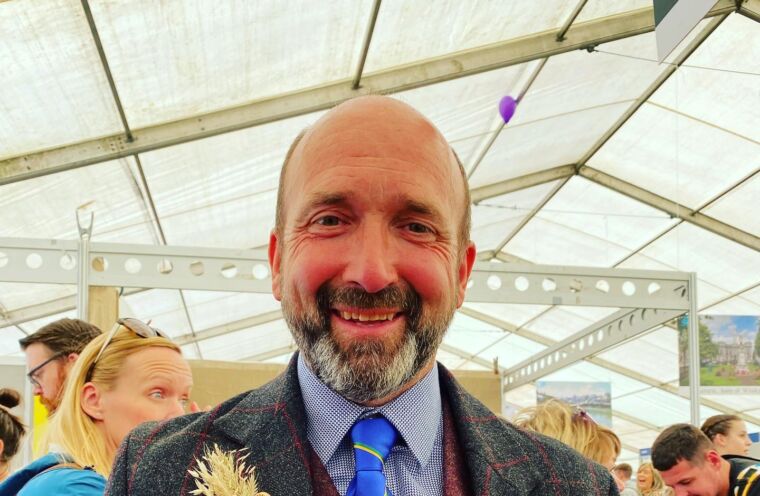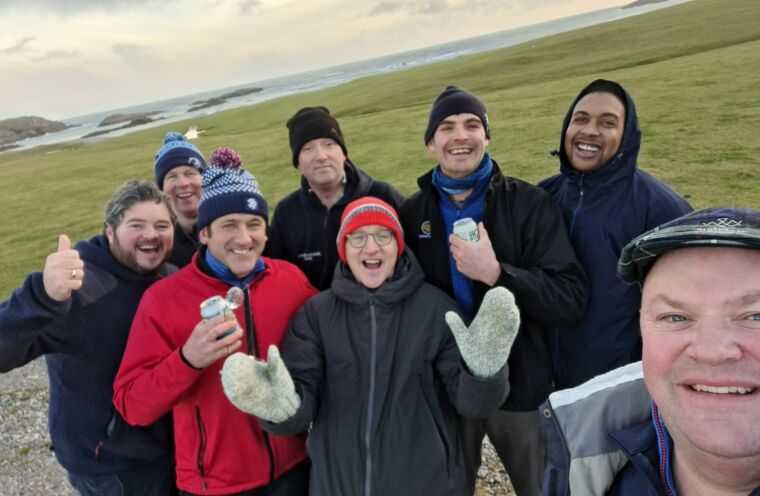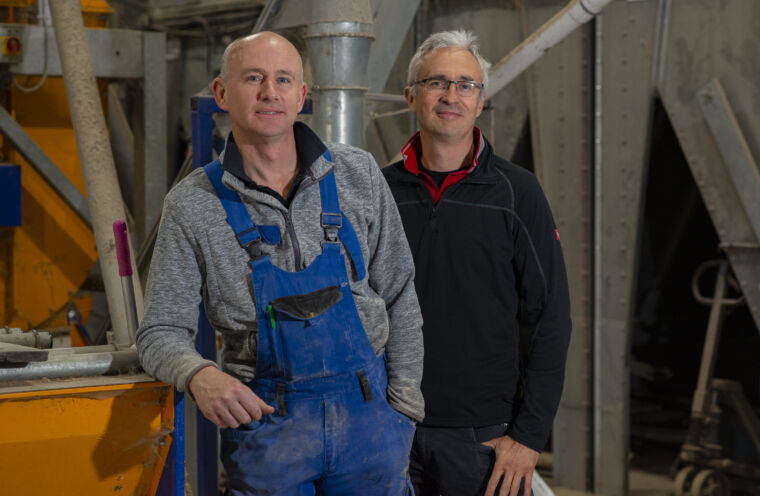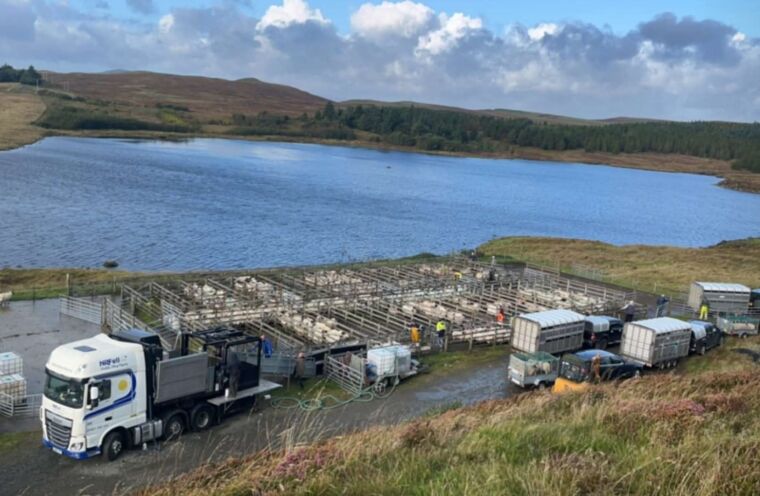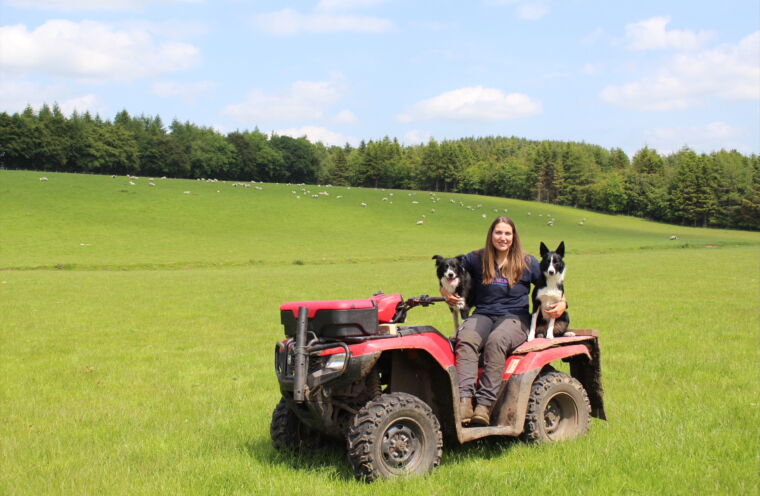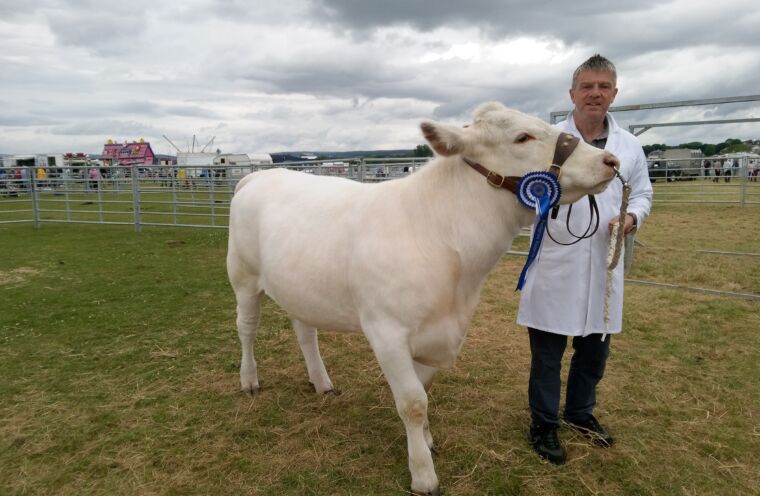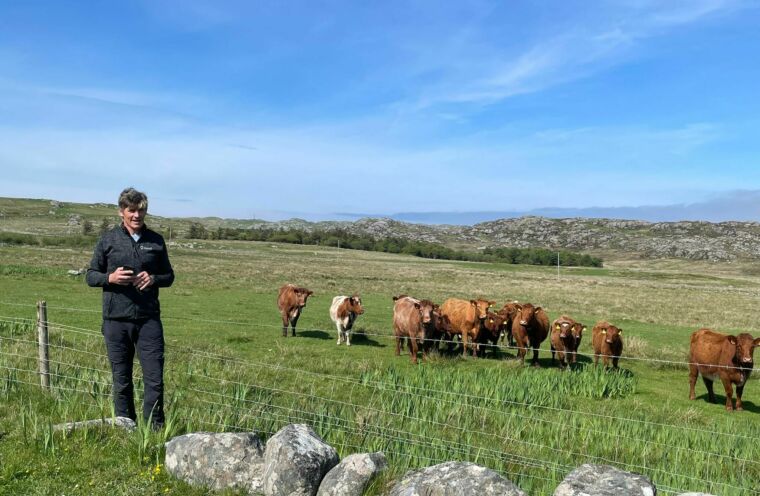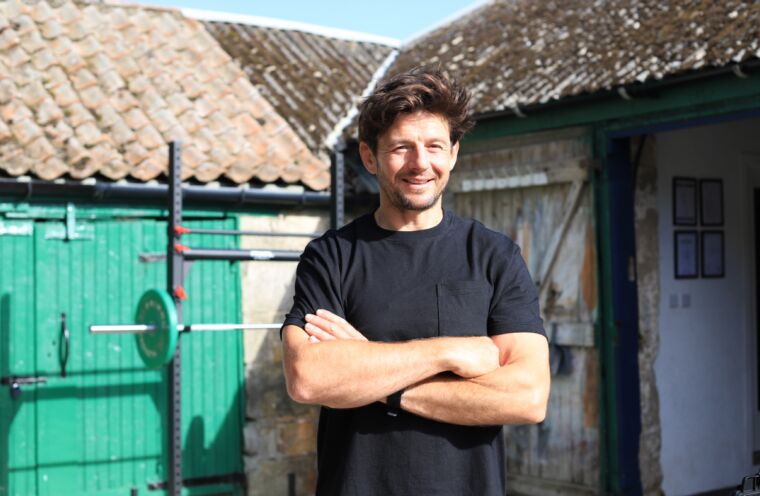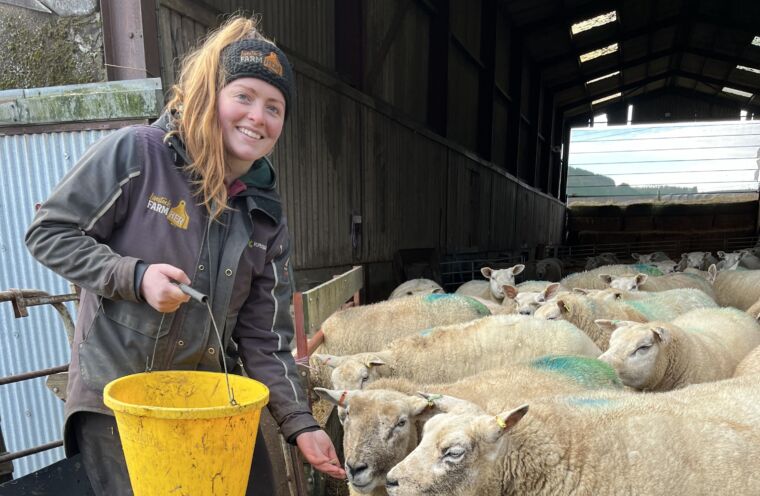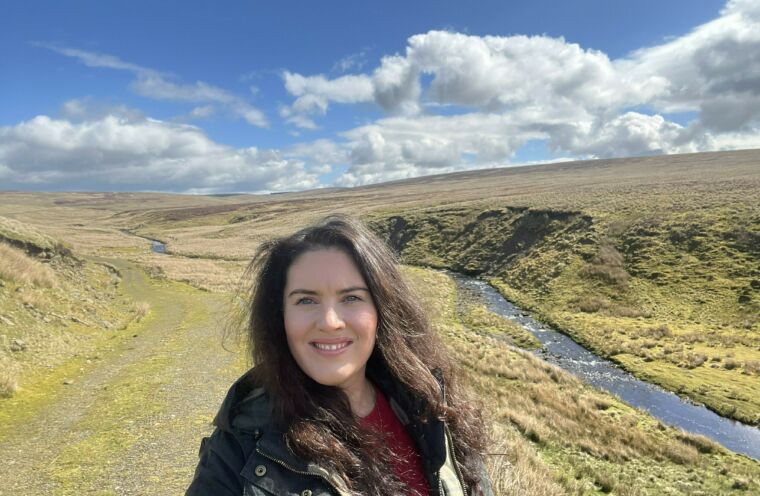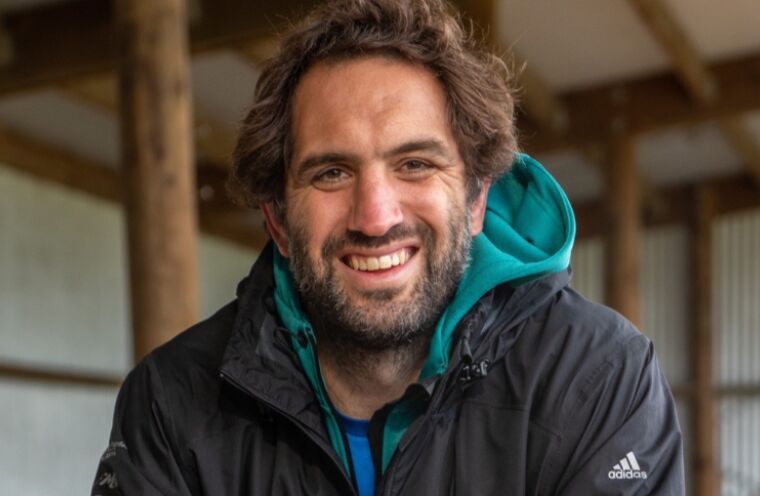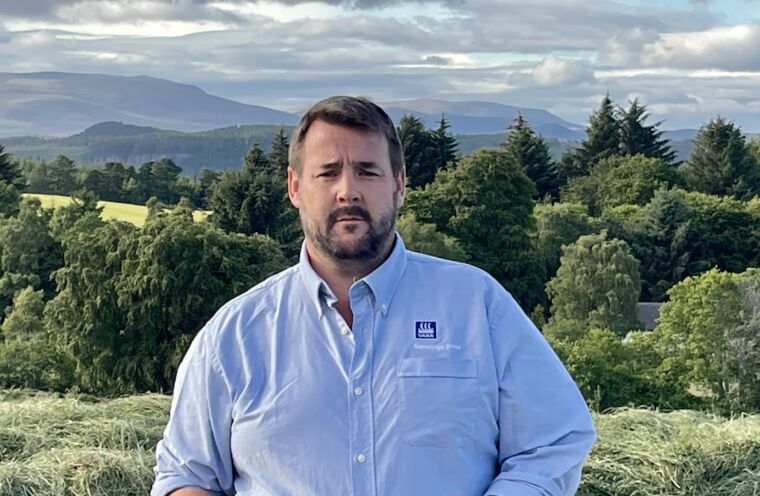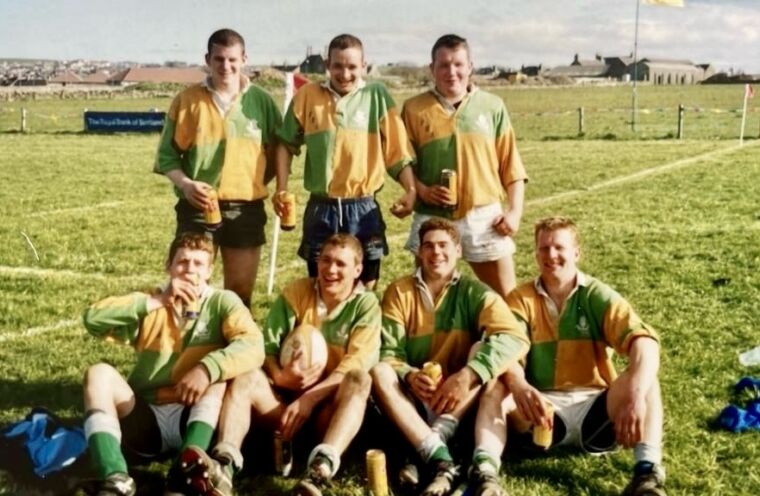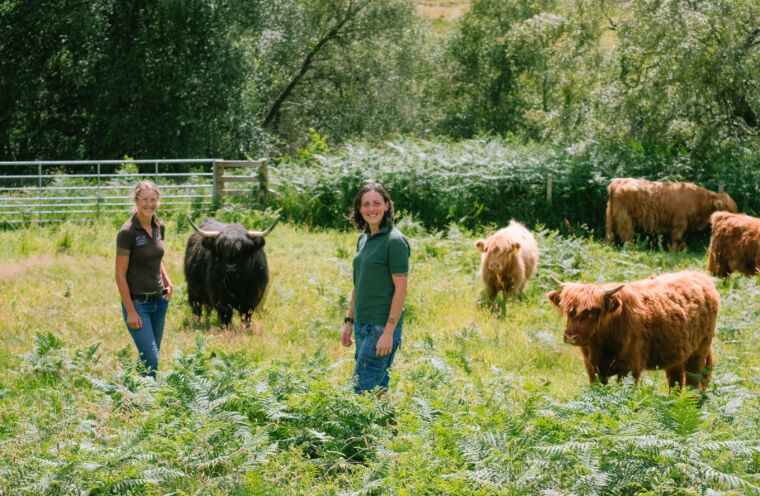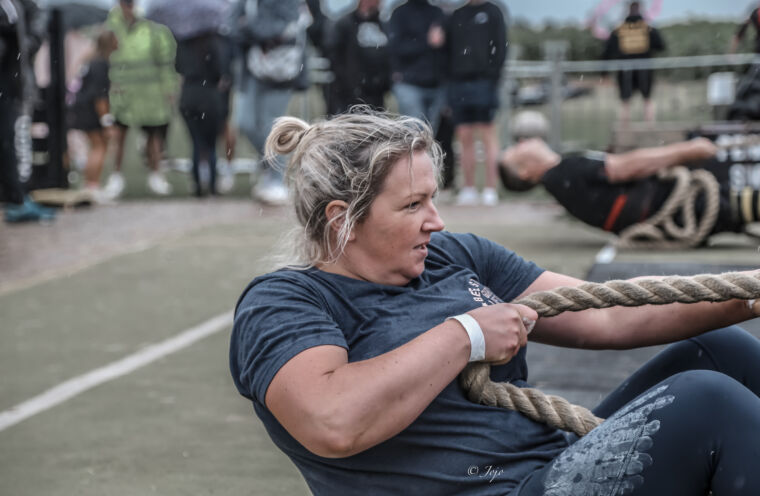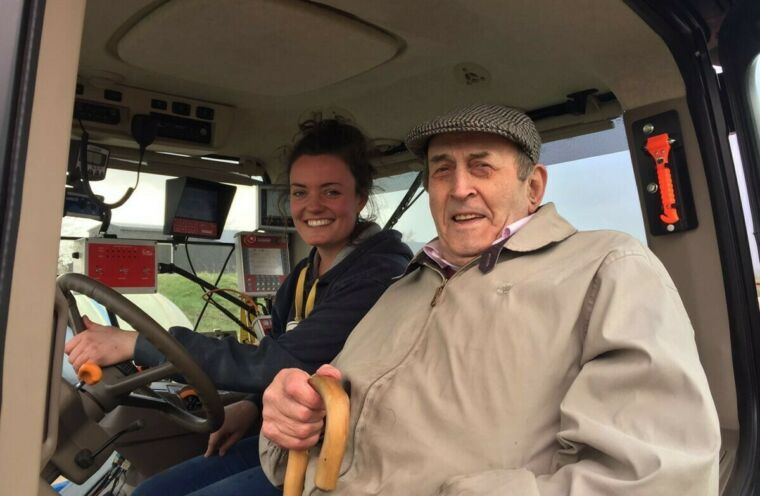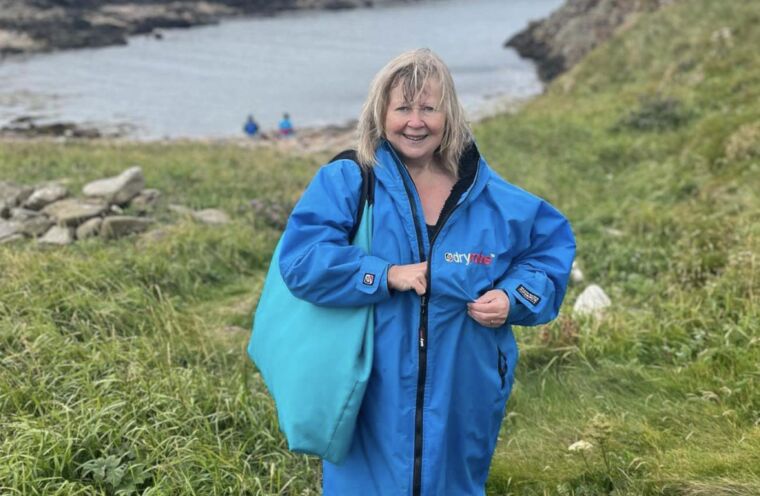Christine Cameron farms 6,000 acres of hill ground near Killin in the Highlands along with her husband Euan. With 1,500 Blackface sheep and a small herd of Lowline Angus cattle, managing menopause alongside farm life hasn’t always been easy, but she’s learned to adapt and is not afraid to talk (or laugh) about it along the way.
“Oh yeah, what was I saying?” Christine pauses laughing at herself as she discusses the initial realisation of being perimenopausal. “This happens constantly. You’ll be having a conversation and then…what was I talking about?”
It’s a small moment, but one many women will recognise. For Christine, 46, being open about menopause, including the funny moments and the challenging ones, is part of taking control.
Recognising the signs
Christine’s perimenopause experience started around three years ago, though pinpointing exactly when is tricky. Hot flushes and night sweats were the most obvious symptoms at first.
“Really hot flushes and sweating, which was awful in the summer,” she recalls. “If I was doing anything and it was even mildly warm, I would just be sweating profusely. Doing work with the sheep in summer - it was embarrassing, really embarrassing.”
She had lived with the symptoms for a couple of years, initially attributing them to fibromyalgia, which she’d been diagnosed with around the same time. But when cognitive changes started affecting her farm work, she knew something else was going on.
The brain fog is real
Along with being told she was experiencing perimenopause, Christine was also diagnosed with ADHD, something which the menopause symptoms amplified. Focus and concentration were affected and led to jobs around the farm taking a bit longer.
“We’d be in the fanks, and I’d look behind me and think ‘oh shit, I forgot to count that one’,” she laughs. “I’m letting the sheep out of the pen, and I haven’t counted them properly and end up getting in a muddle. That sort of thing would happen a lot, and the days when you’ve got sheep or cows gathered are intense enough without adding more stress.”
“There was another time I was just about to start a task with the sheep when I realised I’d picked up the wrong product. Thankfully, I noticed in time and was able to switch before any mistakes were made.”
These experiences have led Christine to develop systems that make things a bit easier to stay on top of. “I’ll take a bit more time now out on the farm and finish a job there and then instead of coming back to something, in case I forget. Everything gets written down,” she explains. “If somebody calls, I write it down immediately. And things like emails must be replied to straight away. I’m really efficient if I do it right away, but if I don’t, I forget, and it’ll never get done.”
Adapting to the physical changes
One of Christine’s bigger adjustments has been learning to work with her changing strength levels rather than against them.
“I used to beat all the boys in arm wrestles at school,” Christine says with a grin. “Now I’m asking my 16-year-old son to help me pick things up. Lifting a 25kg bag is genuinely difficult for me now, and I used to manage two 20kg bags at a time no bother.”
“It can make you feel like you’re losing your identity a bit. I’m supposed to be a farmer so there’s an expectation that I’ll be strong, it’s hard to accept that I’m losing that.”
Rather than seeing this as a limitation, Christine is trying to find practical solutions to bring back some control. “I can’t spend hours on end leaning over to dose sheep anymore as my back won’t take it, so now I just do a different job, and might vaccinate or tag them instead. Rather than focus on what I can’t do, I’m trying to adapt and concentrate on the things I can still do more easily, and that makes me feel more positive.”
“My husband doesn’t know it yet, but we’re going to have to get a quad and trailer for me, as I’m no longer able to lift ewes into the back of the buggy – he’ll know now,” she laughs.
The emotional side
Christine is refreshingly honest about the emotional impact too. She experiences heightened sensitivity – likely a combination of ADHD-related traits and menopause changes.
"You could say my name in a certain tone, and I'd cry. It takes nothing," she admits. "It can be tough when you think others feel you're too slow. I used to come away from the sheep fanks thinking I was completely useless."
Learning to reframe those thoughts has been important for Christine. "Now I remind myself that's not true. If you're doing silly things or feeling emotional, you can say, 'That's my menopausal brain.' And actually, that helps. Know your limits, be forgiving of yourself and don’t be afraid to tell people what’s going on. Once you can do that, you start to feel better."
Breaking down the stigma
For Christine, one of the most frustrating things is the continued stigma around menopause and women’s health in general.
"It's bizarre that we even have to talk about this stigma," she says. "Farmers should be more able than most to discuss it, we know everything about sheep or cows’ body parts and hormonal cycles, but when it comes to talking openly about women’s hormones and health issues it’s a different story.”
She believes simple awareness and patience would make a big difference. "Just being a bit more thoughtful and understanding. If someone's standing there looking a bit lost, just be patient."
She acknowledges the complexity though. "Most women don't want to be treated differently or have people fussing around them. It's tricky. But maybe if we were all better at asking for help when we need it, it would open up the conversation for everyone on the farm or croft."
Advice for others
For women just starting to experience symptoms, Christine's message is clear: "Don't be afraid of going to the doctor and asking for advice and information that is personal to your situation. HRT really helped me. I’m sure it isn’t for everyone, but I made sure I got all the facts first which helped me feel more confident about my treatment choices.”
She also encourages women to develop their own strategies. "Find what works for you. For me, it's writing everything down, breaking tasks into chunks, not being too hard on myself when things don't go to plan and having a good laugh about things when I can."
The silver lining
After discussing the various symptoms and challenges, Christine brings up one final frustration. "They reckon it's 100 calories less you burn a day during menopause. So, your body is using up 100 fewer calories a day – that's my Kit-Kat! So, you can put on weight as well."
Despite all these changes, Christine maintains her sense of humour about it all. "I guess the one good thing about menopause is when your monthly cycle eventually stops. It’s shame you have to go through all this first. But yes, there is a silver lining in there."
To find more of Farmstrong’s menopause content with Scottish farmers and crofters and menopause specialists like Dr Heather Currie MBE, head to the Wellbeing Hub.
Trio and tested – three tips from Christine on helping maintain your wellbeing through the menopause:
- Don’t rule things out without sound advice and research – as always there are lots of theories, but they aren’t always correct and can be dependent on your circumstances – speak to someone who is trained and knows what they are speaking about, treatment was a gamechanger for me.
- Rather than focusing on what you can’t do anymore, concentrate on what you can do, it helps you take back control and keep a sense of identity.
- Coming up with coping strategies helps you function and get things done, which reduces the pressure and stress.



